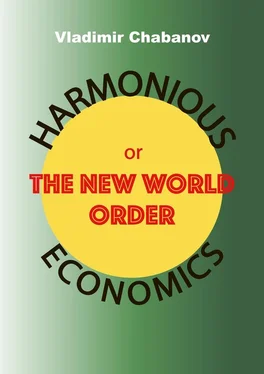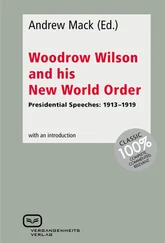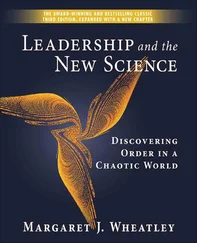Harmonious Economics or The New World Order
Vladimir Emelyanovich Chabanov
Scientific editor: PhD in Economics, Honoured Worker of Higher Education of the RF, Head of the Department of Economic Theory of the S-P State University. Victor Timofeevich Ryazanov
Translator Ekaterina Nikolaevna Bereznikova
Editor Pavel Vladimirovich Tchabanov
Editor Olesya Vladimirovna Gurskaya
© Vladimir Emelyanovich Chabanov, 2018
© Ekaterina Nikolaevna Bereznikova, translation, 2018
ISBN 978-5-4490-4682-6
Created with Ridero smart publishing system
Introduction 1 1 [ Translator’s note: This English-language translation of the monograph is based on the Russian-language manuscript provided by the author; it may, therefore, contain a number of slight differences from the published Russian version of the book.]
Theory that has reached deadlock opens up brilliant perspectives 2 2 [ Translator’s Note: Unless stated otherwise, all quotations from English-language original sources and English translations of foreign-language sources referenced in the bibliography are cited from the respective originals/ translations. All other quotations, unless stated otherwise, have been translated into English for the present edition. All biblical quotations are cited from the Authorized King James Version of the Bible.]
.
Ibn Sabey
Estimated readers!
The book you are holding in your hands is about economics. However, its subject is not the economics that we witness today, but economics the way it should be. This book is about economics that would create a stable and violence-free world where all people would have an opportunity to provide a dignified living for themselves and their families. About economics that would conform with the common sense and respect and promote the ideas of kindness and justice. About economics that would benefit all, whether they are strong or weak, bright or not-so-intelligent, elderly or young. Economics that would encourage a healthy lifestyle and not vice versa, and contribute to the development of culture, education and morality, instead of suppressing them.
This is not a utopia or a naïve dream, but a tenable theory based on the laws of the Universe, world experience, and knowledge. This is precisely what economics should be! Such economics has an internal logic, and, peeled off all that is superfluous, artificial or immoral, this is what the modern shapeless and faulty economic doctrines boil down to. Their intricacies do not arise from the complexity of economics as such, but from the unbounded desire of some to make profit regardless of the costs to Nature and the society.
As the result, the majority of the world’s population has trouble upkeeping their dignity, not only in the earthly matters, but in the international relations, too. In the current economic conditions, common people cannot work normally, live decently, eat healthy, or raise their children any more. Today, human beings have turned from clients into yet another resource, another source of income. Unless they are profitable, there is no need to provide them with means of existence.
Consequently, social protests increase, the feeling of discontent deepens, and terrorism gains ground. On the other hand, the number of millionaires grows. And it would be a violation of truth to believe that the more people get rich, the less poor there are. So why does this happen?
The existing economic theory is based on liberal principlesthat consider the free – that is, uncontrolled – actions of a certain group of persons as the paramount value of the social being. This freedom brings about the inviolability of private property, the freedom of business, and the precedence of the rights of a person over the rights of the society ( a person is more important than the state ). Besides, these principles exempt people of their obligations before others, and limit, as much as possible, the state and social interference in everyday and economic life of the country. This economics conforms to Thomas Carlyle’s formula “anarchy plus a street-constable’ 3 3 Cit. ex T. Carlyle, The Present Time (Cambridge University Press, 2013), 24.
, which the wellbeing of the state and the society do not fit.
Such economic philosophy in all its forms turned out to be most advanced and thoroughly tested, and has served as the ideological foundation of the modern economic science. That is why all tools,criteria and incentives of the existing structure have been adapted to serve the profitable economics and not the useful economics. For instance, its global indicators, such as GDP, national income, and GNP, are based on the monetary income and not the tangible social improvements. All of the above-mentioned factors have given rise to a global confrontation between the social nature of production and the private consumption of its results. Nevertheless, economics disregards this and continues along the selected path, just as a driver who would navigate by the stars failing to look at the road. It is obvious that in such conditions collapses are inevitable.
Due to these reasons, current economics is incomplete, self-contradictory, and unstable. Its notions cannot withstand reasonable criticism, they have lost touch with reality, and lack unifying logic and clear objective. These notions are obsolete. However, there is no solid structure, and for that matter no science, without a foundation.
Indeed, the chasm separating modern economic studies from economic practice is dispiriting. The way it is interpreted and taught, this subject has little in common with the real situation. As Ronald Coase, Nobel prize winner in economics in 1991, wrote: “ The tools used by economists to analyse business firms are too abstract and speculative… Since economics offers little in the way of practical insight, managers and entrepreneurs depend on their own business acumen, personal judgment, and rules of thumb in making decisions… Economics thus becomes a convenient instrument the state uses to manage the economy, rather than a tool the public turns to for understanding how the economy operates ’ 4 4 [ Translator’s note: Translated by me.]
. [1]
The tone of the modern economics is set by theoretical philosophizing on price formation principles, returns and expenses, interest rates and inflation, demand and offer, rent and preferences, which has supplanted discussion of the ways to increase labour productivity and improve labour organisation. Instead of striving to create conditions for dignified human existence and cultural development, this science is impregnated with acquisitiveness.
Thus, economics turns out to be a fruit of centuries-old delusions, passions and egotism, politics and momentary actions, and not a product of systemized knowledge. It is used to justify and to serve the existing political regime, not to improve it. That is why the crisis we observe today is easy to understand and explain. Besides, a large number of economists are familiar with it (ref., inter alia, [2] – [5]). For this reason, the method of analogies, i.e. the trial and error method, is used in decision-making, which with time renders it ever less reliable and ever more expensive. Another possibility is to recreate blindly the experience of others.
In order to avoid it, a solid fundamental theory is required that would be capable both of forecasting and guiding. It should serve as a compass to indicate the correct and the erroneous direction of development for every specific action. Unfortunately, in modern economics, such a tool does not exist and is not even foreseeable.
Читать дальше












